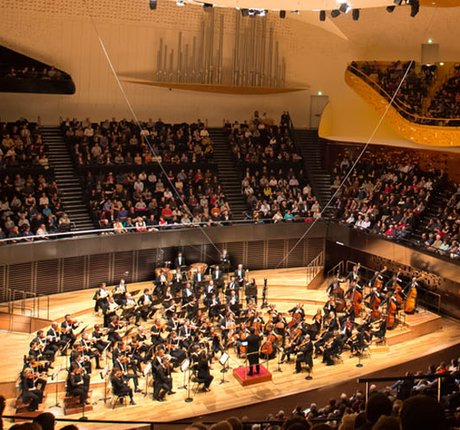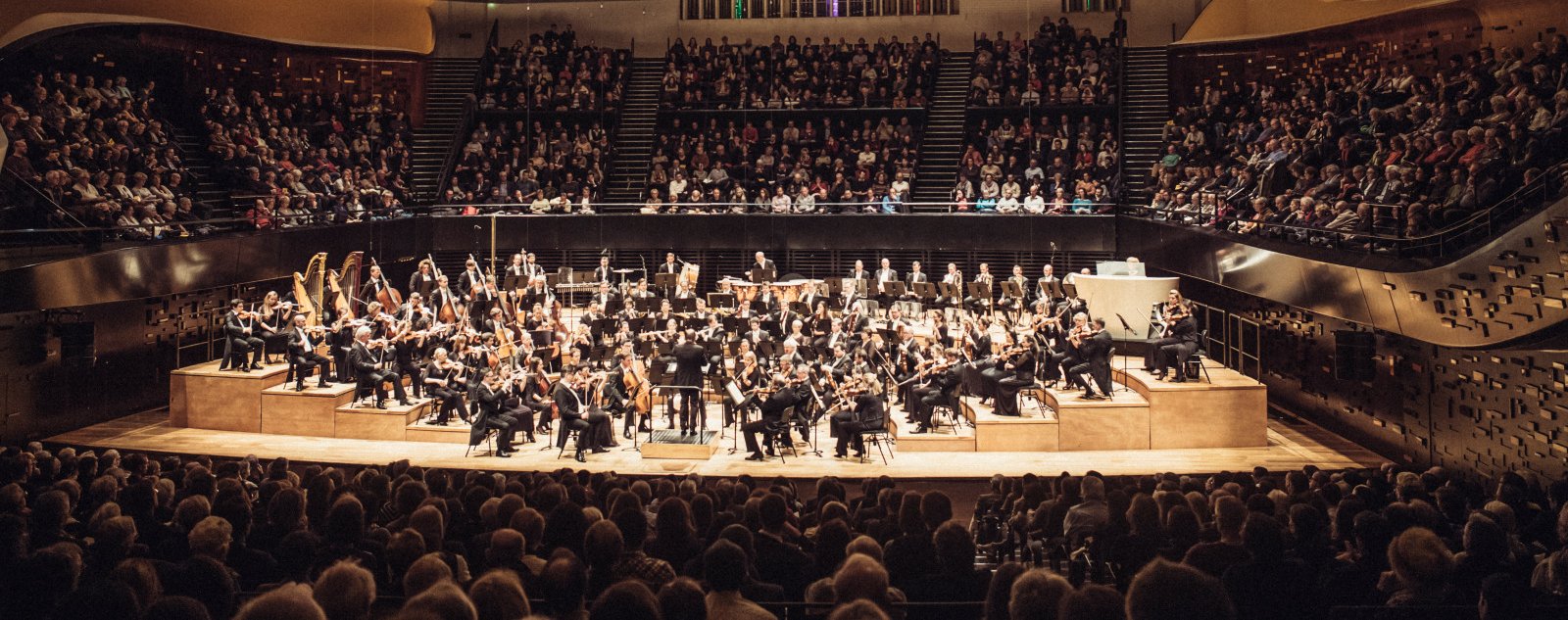Program
Distribution
This legendary score, famously dubbed ‘of a Thousand’ by an impresario, threw symphonic norms to the wind. Mahler conceived it as an ode to the creative spark, the genius of humanity and the immensity of the universe.
With its plethora of forces, two mixed choirs, children’s choir, eight soloists, and dramatic and liturgical inspiration, Mahler’s Symphony No. 8 is one of the ‘sacred beasts’ of the repertoire. Its premiere in Munich in 1910 was a triumph for the composer and made the score an instant legend.
Revolutionary in that it includes voice from beginning to end, the Eighth is more like an immense cantata than a symphony in the usual sense. It consists of only two movements. The first, which opens with a burst of energy, is built around the Latin hymn Veni creator spiritus, offering a spiritual celebration of creative will. The immense second movement, with its more human—even humanistic—perspectives, is based on Goethe’s Faust II. This ode to love and the power of the feminine reconfigures the musical material of the first movement, serving at once as Adagio, Scherzo and Finale for a work in which Mahler consciously pushed all boundaries.

Grande salle Pierre Boulez - Philharmonie
See the venueGetting here
Porte de Pantin station
Paris Underground (Métro) Line 5
Tram 3B
